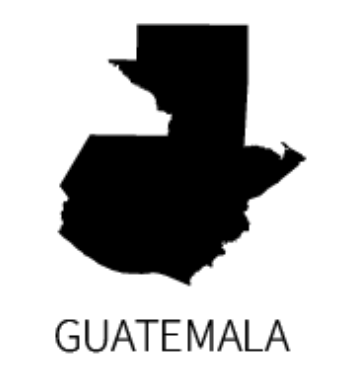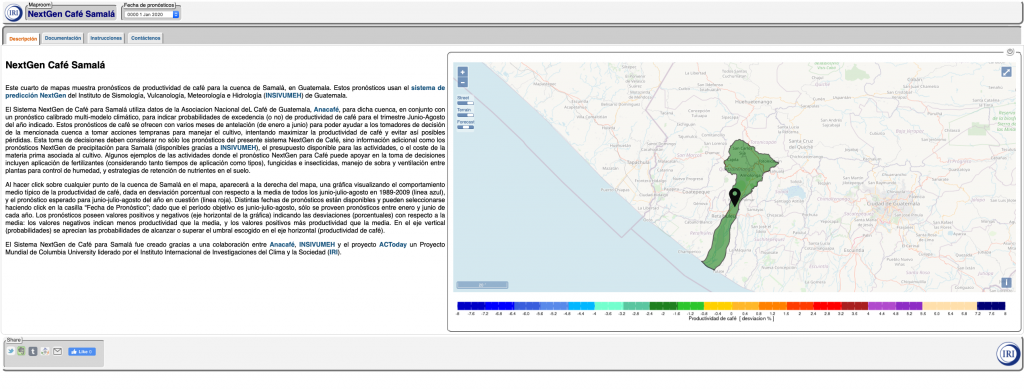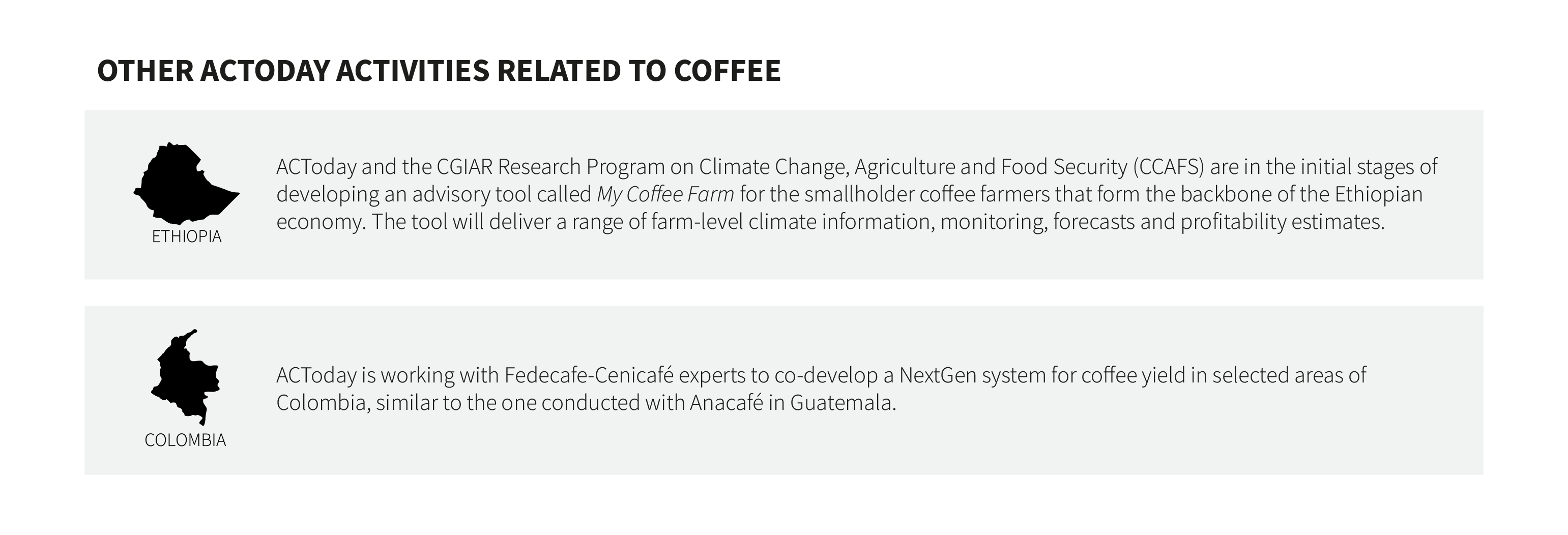2021 ACToday Highlight: Boosting the Climate Resilience of the Billion-Dollar Coffee Sectors in Guatemala and Vietnam
This story was published as part of the Adapting Agriculture to Climate Today, for Tomorrow (ACToday) Columbia World Project 2021 Report. Read the full report here.
ACToday operates in four of the top ten coffee-producing countries in the world: Colombia, Ethiopia, Guatemala and Vietnam. Minimizing climate risks to coffee production is a strategic component of ACToday’s goal of improving food security for hundreds of thousands of farmers who depend on the crop for income. A closer look at our work in Vietnam and Guatemala shows how ACToday is supporting this important sector.

Coffee is a big business in Vietnam, the world’s second largest producer, which exported more than $2.4 billion worth of the crop in 2019. Although coffee is not a food crop, its production plays a significant role in the food security of many communities who depend on the crop as a primary source of income.
Climate variability and change pose a growing threat, as rising temperatures and extreme weather subject farmers to increasing uncertainties: longer droughts, more frequent floods and severe outbreaks of pests and diseases that result in reduced productivity.
To help Vietnam’s coffee farmers adapt to these climate-driven changes, ACToday is creating a new digital app that delivers location-specific climate information and growing-season advisories that can help farmers maximize yields and reduce operating costs.
The app, called ACToday Coffee, is being developed with Vietnam’s Ministry of Agriculture and Rural Development (MARD) and the Alliance of Bioversity International and the International Center for Tropical Agriculture.
“The collaboration builds on our partnership with MARD, which is strongly interested in providing improved climate services and economic support to Vietnam’s coffee farmers,” said John Furlow, the country lead for ACToday in Vietnam.
“Our goal was to customize, translate and connect climate information to profitability and costs at the farm level.”
J. Nicolas Hernandez–Aguilera, IRI
The highest costs Vietnamese coffee farmers incur are for fertilizers, fuel to run irrigation pumps and labor. Climate uncertainty can drive these costs even higher. For example, to protect their yields against unpredictable extreme weather events or droughts, farmers might end up using much more water and fertilizer than is necessary, wasting precious resources, labor and money.
“Our goal was to customize, translate and connect climate information to profitability and costs at the farm level,” said J. Nicolas Hernandez-Aguilera, an economist who helped develop ACToday Coffee.
The app will provide growers with customized information to help them with farm-level management and planning decisions. Farmers will be able to calculate, for example, the lowest amount of fertilizer and water they need to use to maximize coffee yields for their specific growing region, said Hernandez-Aguilera.
Eighty percent of Vietnam’s coffee is grown in the Central Highlands region, home to 47 out of 54 of the country’s ethnic minority groups. Coffee is a main source of income for many of these groups.
“Coffee revenues contribute about 30% to the region’s gross domestic product,” said Tran Cong Thang, Director General of Vietnam’s Institute of Policy and Strategy for Agriculture and Rural Development. “Coffee production has helped to raise incomes and reduce poverty within the ethnic minority communities, which face many difficulties.”
The Vietnam team hopes to pilot ACToday Coffee in mid-2021.

On the opposite side of the planet, Guatemala’s coffee farmers share the same worries about the sustainability of their livelihood as do their counterparts in Vietnam. Guatemala consistently ranks in the top ten producers of coffee in the world and exports nearly $1 billion of the crop each year, according to the Food and Agriculture Organization.
As in Vietnam, climate change, droughts and excessive rainfall events are posing increasing threats to coffee yields in Guatemala.
Similar to the efforts it is making in Vietnam, ACToday has developed a platform that will help Guatemala’s 125,000 coffee growers improve their farm-management practices and ultimately help them calculate predicted crop yields based on local climate forecasts. To create and test the system, ACToday partnered with Guatemala’s national coffee association, Anacafé, a trade group that works on behalf of all the country’s coffee producers, from large plantations to smallholder farmers. Anacafé is expected to roll out the decision-support platform nationwide by the end of 2021.
“We’re finding that one of the key ways to improve food security in Guatemala is to help reduce climate risks related to coffee production, given the importance of this crop in the economy of the country, thereby protecting an important income stream for families.”
Carmen González Romero, IRI
“Anacafé will be able to generate estimated yields based on what the climate is likely to do, and issue tailored recommendations to different growing regions.” said Carmen González Romero, ACToday country manager for Guatemala and Colombia. “A capability at this level has never existed before.”
The new platform stems from ACToday’s ongoing collaboration with Guatemala’s national meteorological service, INSIVUMEH.
“We observed that the forecasts issued by INSIVUMEH were increasingly specific and accurate since ACToday began working with the meteorological service,” said Ligia Mariela Meléndez Pérez, an agroclimatologist at Anacafé. “We’re excited to translate these new capabilities into information our farmers can use to improve their productivity and manage climate risks. Anacafé has a responsibility to provide the best available climate services for our coffee growers.”

Nearly 97% of Guatemala’s coffee is grown on smallholder farms. Annually, the coffee sector generates around half a million direct and indirect jobs.
“We’re finding that one of the key ways to improve food security in Guatemala is to help reduce climate risks related to coffee production, given the importance of this crop in the economy of the country, thereby protecting an important income stream for families,” said González Romero.
The forecasting service ACToday is building with Anacafé will help thousands of farmers stay competitive in a challenging, highly globalized market.
“Good yields can often mean the difference between their families having enough to eat or not,” added González Romero.


You must be logged in to post a comment.